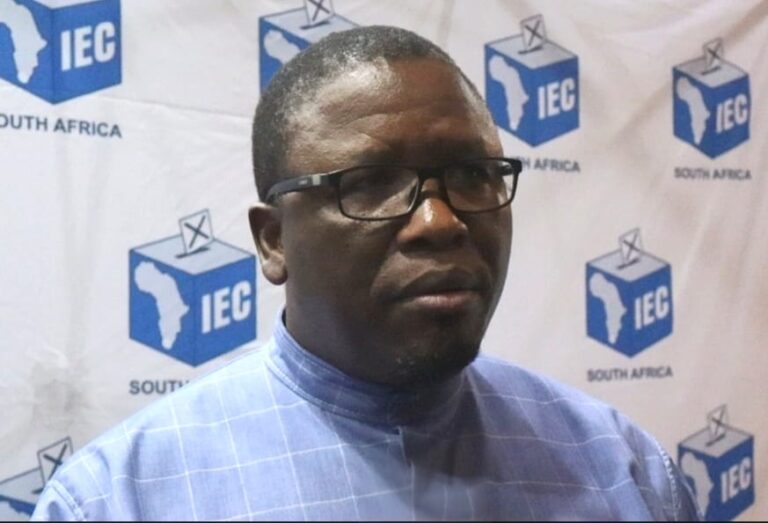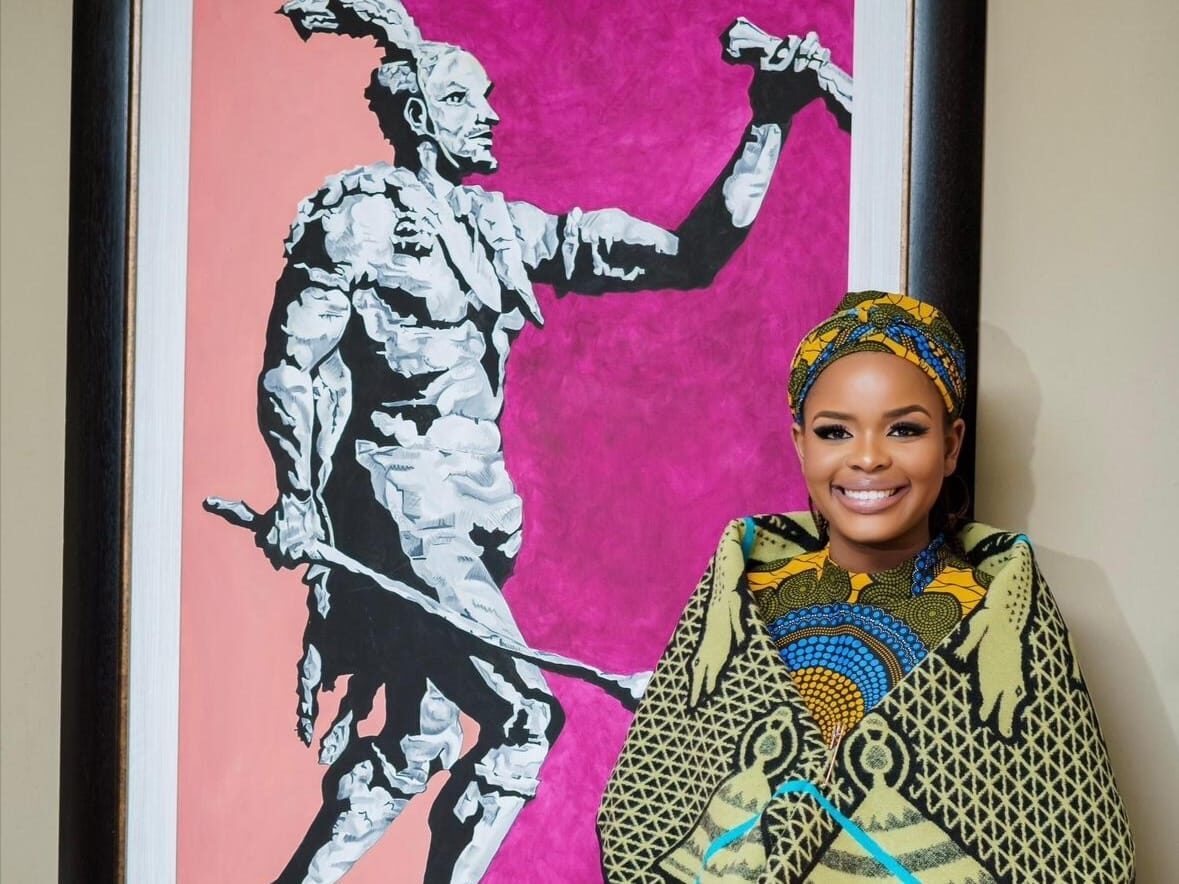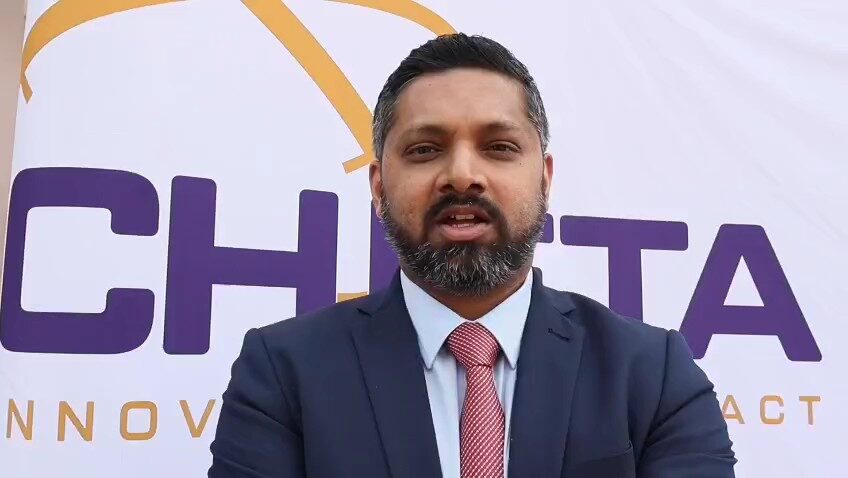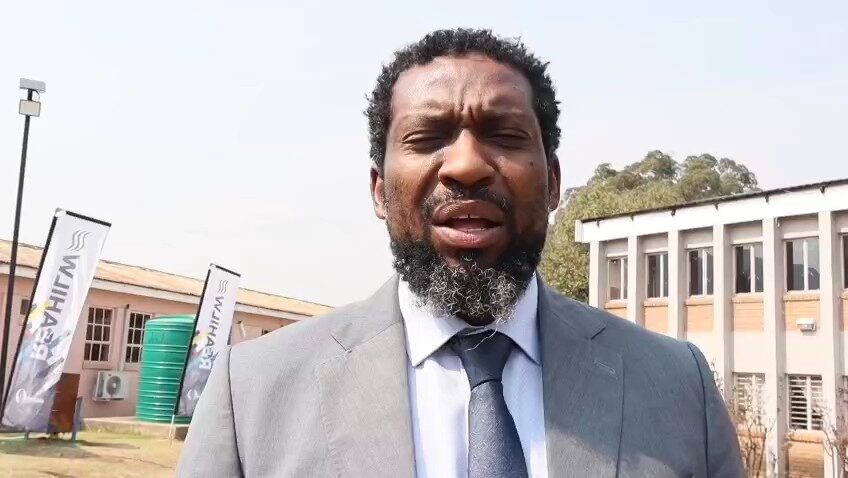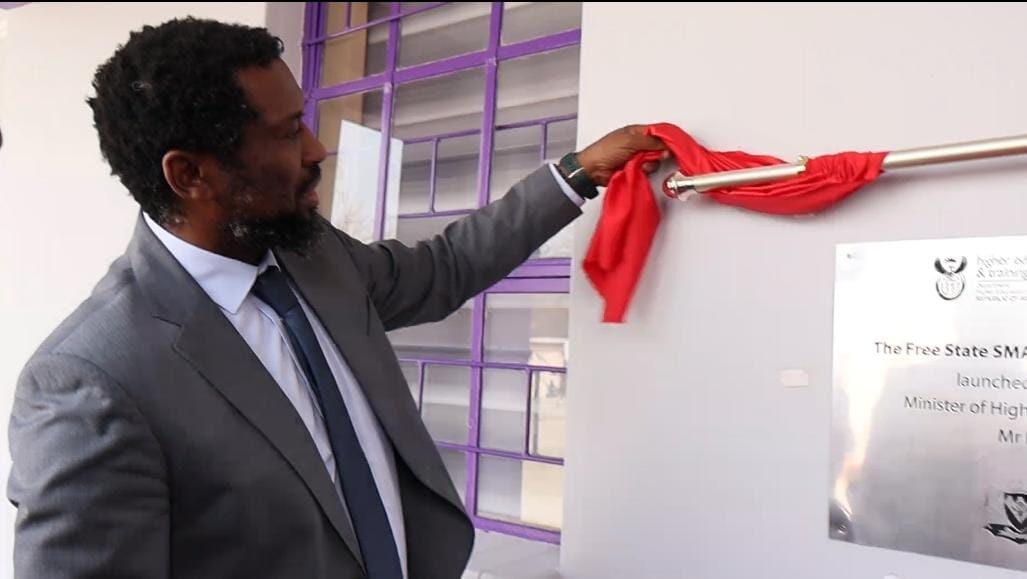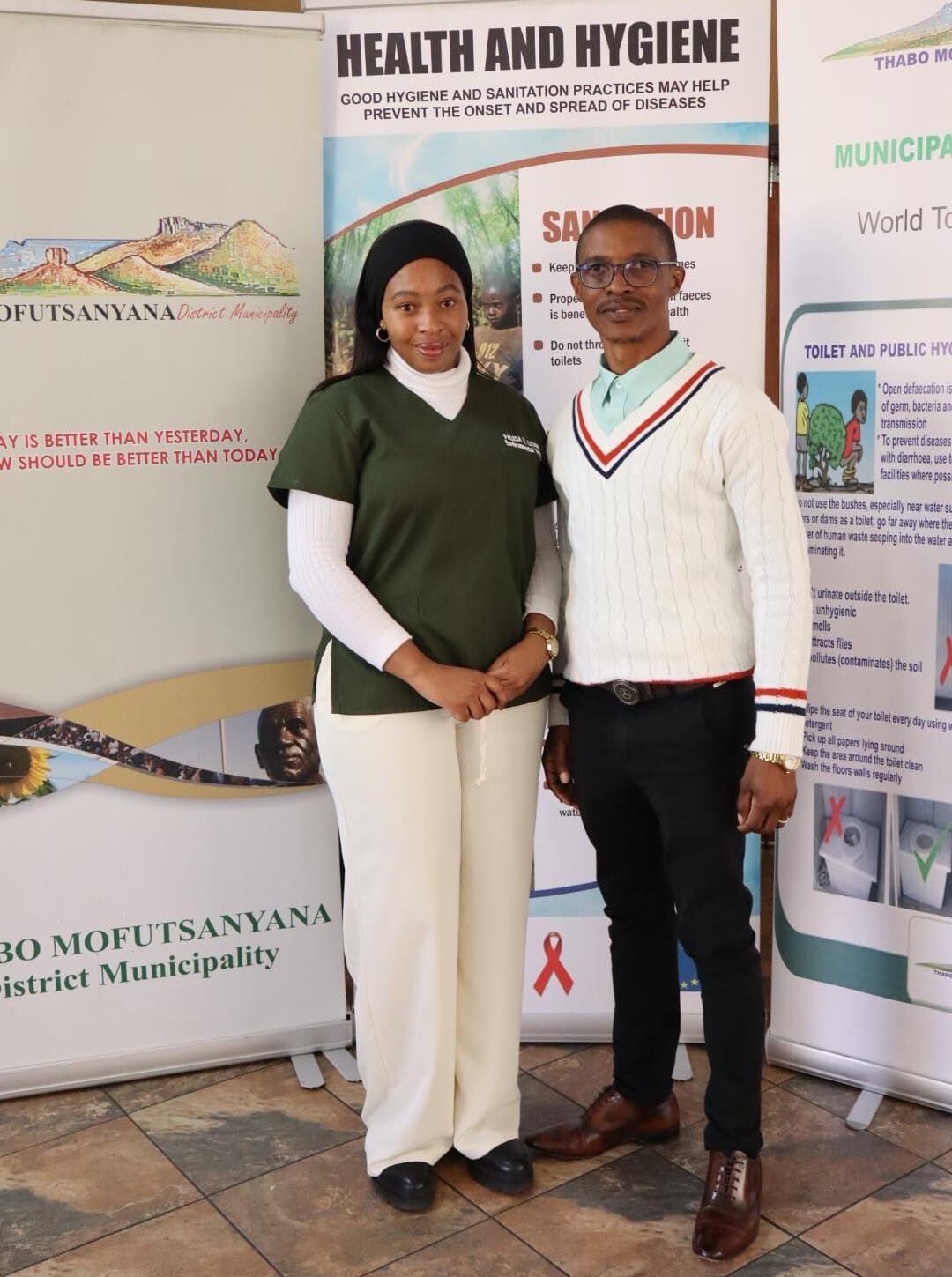By Emily Setona
QWAQWA – The University of the Free State’s (UFS) Qwaqwa campus celebrated an unprecedented academic triumph as Professor Richard Ocaya, from the Department of Physics, has been honoured by the UFS Centre for Global Change for his ground-breaking research, which is set to be published in the Nature journal.
This marks the first time in over a century that a UFS researcher has achieved such a milestone, signalling a powerful shift in the university’s global research presence.
On 14 April 2025, the UFS Centre for Global Change hosted a commemorative event to celebrate Prof Ocaya’s remarkable achievement.
The occasion was not only a personal victory for the professor but a historic moment for the Qwaqwa campus and the broader academic community in South Africa.
During an interview with The Guard, Prof Ocaya offered a sobering reflection on the core issue of his research: space debris; “Human behaviour is a remarkable thing. It’s both good and bad. Unfortunately, with space debris, with falling space debris — until such a time when such falls on a nursery school, on a hospital, on a military installation, on an oil refinery, on an aircraft in the air… and exerts a catastrophic toll on human life and property, it is just going to be one of those problems out there.”
Ocaya’s research explores the dynamics of falling space debris, including how quickly it moves and the limitations of current technological interventions. “Science proves that they come down smouldering hot. The remarkable thing is that we have the technology to track these objects. What our dynamical model shows is that from the time these objects begin their descent to when they land, it takes eight minutes. Meaning that even if we could track these objects, eight minutes is too short to stop them from causing damage,” he said.
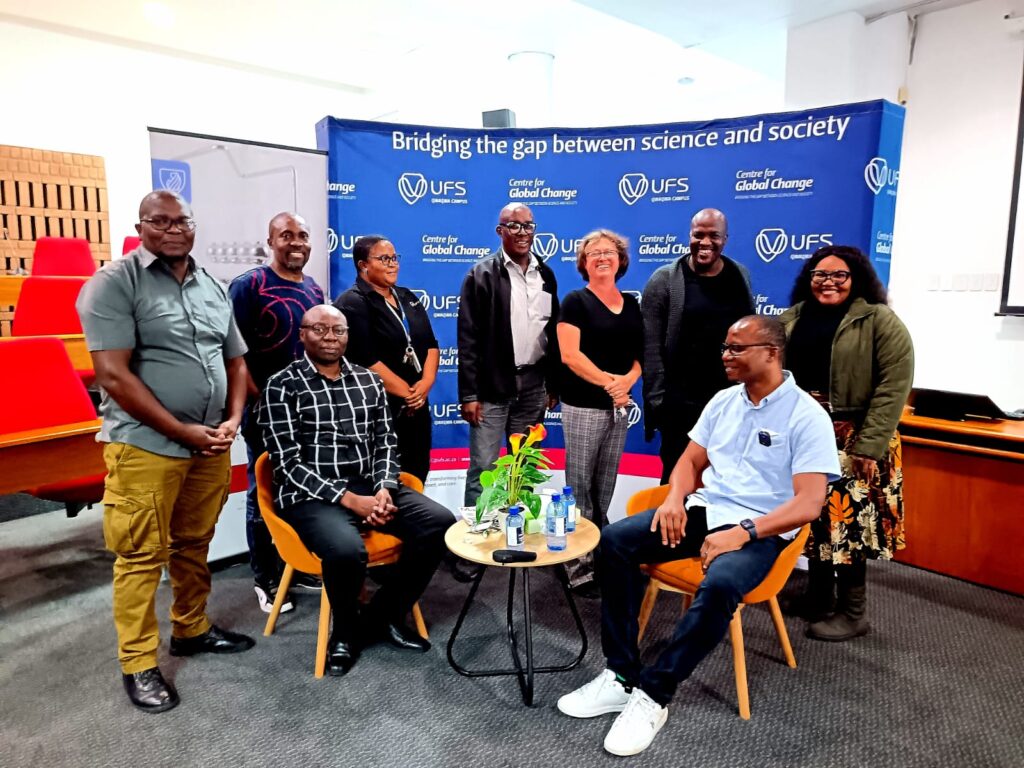
Seated wearing black and white shirt Professor Richard Ocaya surrounded by UFS staff and Qwaqwa campus principal Prince Ngobeni wearing white shirt and black jacket standing.
But the research goes beyond physics. It delves into societal response and the urgent need for global dialogue. “One can look at the other aspect of our research,” Ocaya said, “which is to study the dialogue around this matter. South Africa is a country that is not afraid to talk about sensitive issues. This places us in a unique position to say ‘Hey people, this is affecting us. Let us come to the table and get the dialogue going.’ Maybe the dialogue will cause a shift to more meaningful laws that aim to protect us.”
The publication of Prof Ocaya’s work in Nature not only validates the importance of his research but also elevates the academic standing of the UFS Qwaqwa campus. Prof Prince Ngobeni, speaking on behalf of the university, expressed deep appreciation for Ocaya’s work. “Prof Ocaya is putting our campus on the map. Even some of us, from our respective environments, are contributing some things — making sure that we contribute to the success of the University in terms of the research that we are doing. I can see that our rankings are improving in terms of the research applications that we are doing,” Ngobeni said.
Prof Patricks Otomo, head of the Centre for Global Change, called the achievement “a momentous occasion” worthy of recognition. He emphasized the importance of commemorating such milestones, especially in a country where academic accomplishments are often overshadowed by other pressing national concerns.







